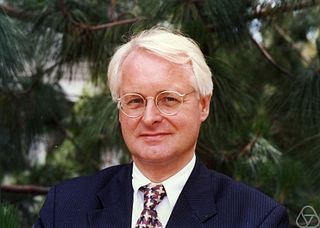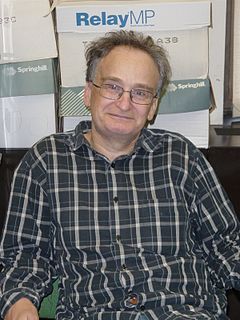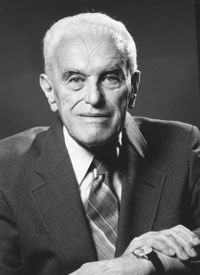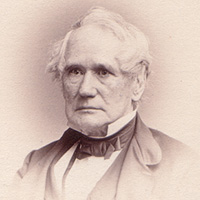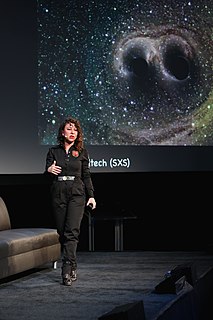A Quote by Hendrik Lenstra
Recreational number theory [...] is that part of number theory that is too difficult to study.
Related Quotes
As soon as science has emerged from its initial stages, theoretical advances are no longer achieved merely by a process of arrangement. Guided by empirical data, the investigator rather develops a system of thought which, in general, is built up logically from a small number of fundamental assumptions, the so-called axioms. We call such a system of thought a theory. The theory finds the justification for its existence in the fact that it correlates a large number of single observations, and it is just here that the 'truth' of the theory lies.
Renormalization is just a stop-gap procedure. There must be some fundamental change in our ideas, probably a change just as fundamental as the passage from Bohr's orbit theory to quantum mechanics. When you get a number turning out to be infinite which ought to be finite, you should admit that there is something wrong with your equations, and not hope that you can get a good theory just by doctoring up that number.
In these researches I followed the principles of the experimental method that we have established, i.e., that, in presence of a well-noted, new fact which contradicts a theory, instead of keeping the theory and abandoning the fact, I should keep and study the fact, and I hastened to give up the theory.
If the theory accurately predicts what they [scientists] see, it confirms that it's a good theory. If they see something that the theory didn't lead them to believe, that's what Thomas Kuhn calls an anomaly. The anomaly requires a revised theory - and you just keep going through the cycle, making a better theory.
the truth and value of a theory does not depend on the number of people who are interested in it - otherwise you might compare the number of people who follow the predictions of astrologers in the daily press with those who attend lectures by Einstein, and conclude that astrology was more valuable and true than physics.
It is naïve to suppose that the acceptance of evolution theory depends upon the evidence of a number of so-called "proofs"; it depends rather upon the fact that the evolutionary theory permeates and supports every branch of biological science, much as the notion of the roundness of the earth underlies all geodesy and all cosmological theories on which the shape of the earth has a bearing. Thus antievolutionism is of the same stature as flat-earthism.
